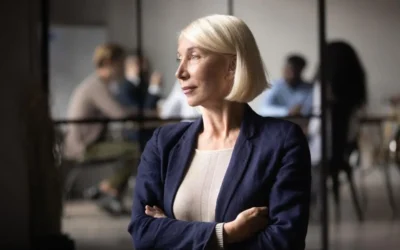“You can tell a man is clever by his answers. You can tell he is wise by his questions” — Naguib Mahfouz, Egyptian Nobel Laureate
If I had a dollar for every opinion I’d heard over the last few months about what would solve the woes of the US economy, I reckon I’d be able to fund the entire $700 billion bailout myself! The economy, energy independence, foreign policy, auto industry bailouts, war-torn Iraq, recalcitrant Iran, Sarah Palin, health care, Republican vs. Democrat. Man, there are a lot of different opinions out there and living a stone’s throw from Washington DD, I’ve been well and truly immersed in them!
Of course I don’t have all the answers to these big problems but what truly amazes me is how many people think they do. Julio Olalla, a wise man and masterful coach, once said “most people have answers to questions they have never asked.” Whether it’s the big problems facing the globe or the more personal problems people struggle with in their relationships, familys, careers and lives, most people have far more answers than they do questions. Just this last week I was with a client who stated, most emphatically, “but this is just the way it is!” in regard to a challenging situation he faced at work. But, as I pointed out, “this is not just the way it is, this is just the way it is FOR YOU!”
For all of us, the story we have about a situation can undermine the effectiveness of our actions to address it. I will guarantee you that if there’s an issue causing you some emotional heartburn then intertwined in the problem will be an opinion you are holding that needs putting through the ringer. Likewise, if you have problem that keeps resurfacing again and again (even if in different clothes each time) then there’s something missing in how you are looking at it that is perpetuating the cycle. Only by having the courage to ask new questions which challenge the answers you’ve been treating as “truth” and stepping back to see your opinions for what they are — just opinions — can you hope to resolve your relationship tensions, organizational challenges and any other problems that weigh you down.
Zen says, “Don’t seek the truth. Just seek to cherish opinions.” To which I would add, “…particularly those different to your own.” Obviously we are all entitled to our opinions. It’s when we think that our opinion is the only right and valid one that we run into strife. After all, if your opinion is the only right one, then by default, everyone else’s must be wrong. The implication: you are smart, they are stupid (or at minimum, misguided). The irony is that our ability to persuade others to adopt our viewpoint is weakened, not strengthened, when we force it onto others.
Having arrived back in Australia last week I found myself in a conversation with someone who was telling me how “shameful, immoral and unethical” our government and corporate leaders are for their lack of action in the fight against global warming. She was absolutely outraged that companies put bottom-line concerns ahead of the environment. It’s possible there were some valid points somewhere in her argument but the ferocity and righteousness with which she was pushing her opinion on me and the complete absence of any interest in my opinion that challenged her own left me checking out of the conversation and making a mental note to avoid similar conversations with this woman in the future. After all, how can one reason with someone who is being unreasonable? I felt like I was having an argument with a two year old.
Of course I’m sure you would never be as righteous as this, but perhaps there is some issue (or person) that you are very one-eyed about that is doing you, and your cause, a disservice. It brings to mind something the late comedian George Carlin once said “have you ever noticed out driving your car how everyone going slower than you is an idiot, and everyone going faster is a maniac?” We all like to think that “we” are the one who has it figured out and it’s everyone else that is morally or intellectually inferior in some way. It’s a human thing. But it’s my humble opinion that the most evolved among us aren’t those with the most answers but those with the best questions.
Look at all the suffering, violence and problems in the world, and you can trace most of it back not to the work of mentally unhinged nuts or narcissistic criminals, but to normal respectable people who are convinced of the rightness of their opinions. But in a world weighed down by so much conflict, family breakdown, injustice, immaculate mediocrity, fundamentalism and sheer ignorance, just imagine the profound shift that would occur if people were willing to step away from all their answers, let go their stranglehold on “the truth” and step humbly, and vulnerably, into questions. Questions like:
- What is it about me, and how I’m observing this, that has me see it as I do?
- How else could I view this situation?
- What is it about how others see it that I can learn from?
- How might others’ opinions be threatening to me? Why?
- How might my opinion be threatening to them and how can I make it less so?
- Where is my pride and ego invested in me being “right” (or making others wrong)?
- What questions have I never asked about this issue, situation or person?
- Where would collaboration, respect and harmony grow in my relationships if I could give up being the one with all the answers?
Most people are far too busy trying to preserve their ego (and the opinions which prop it up) to step back and seek out a deeper understanding and broader perspective. Whether it’s an issue with a work colleague, spouse, family member, or your boss, taking time to genuinely understand not just what they think, but why they came to think that way, can be an extremely worthwhile endeavor. Stephen Covey, with whom I will be contributing to a book next year, stated in his best-selling The 7 Habits of Highly Effective People, “seek first to understand then to be understood.” Note he did not say, “make sure you are understood then seek to understand.” Why? Because he knows that no one likes to have an opinion forced down their throat and trust and mutual respect always grows when we take time to genuinely listen in a spirit of open-mindedness.
There are things in life that we can never fully understand; mysterys that will never be solved. However by sitting in the questions, and being willing to engage in conversations that expand our thinking, we stand a far greater chance of living into the answers and resolving the big challenges facing us, personally and collectively, than we otherwise might.
And what about you? How might it serve you — your relationships, career, finances, health and happiness — to let go some of your answers and begin asking new and bigger and harder questions? I don’t know the answer, but I’m sure a new realm of possibilities will open up for you as a result.
Being back in Australia (with rather sporadic internet access!) the entire month of December and traveling around it to numerous speaking engagements, weddings, parties and festive season gatherings I will take this opportunity to wish you a very Merry Christmas and look forward to challenging and supporting you to living bigger and more boldly in 2009!






